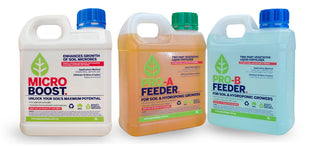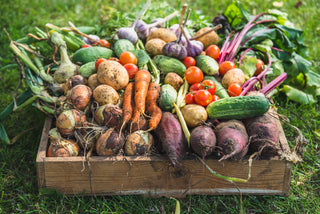
Vegetables required very fertile and aerated soil, as their life period is fast (almost all vegetables have a short and fast life span) so they need a quick dosage of nutrients and lighter soil for penetration of roots. For specific soil conditions, we divide the vegetables into 2 groups of roots and shoot according to their fruit harvest.
Soil condition for root vegetables:
- Soil type: well-drained that doesn’t clog any water (because standing water will cause rotting in the root vegetable and may cause disorders like cracking of vegetables), good porosity like sandy soil and soil must be loose and free of any stone or pebble (stiff or stony soil will cause deformation disorder).
- Soil pH: 6-6.5
- Nutrients: If you are planning to grow vegetables in the garden which is already established then take a soil test because over-dosage will result in burning, stunted growth, and deformation of root crops. The essential nutrient for root vegetables is nitrogen as it vanishes from the soil with time (mostly enough potassium and phosphorus are present in the soil). For a new start, 10:10:10 NPK is mostly recommended combination but also varies with the type of crop you choose.
- Example: beets, potatoes, carrots, sweet potatoes, radishes, parsnips, turnips, and swede.
Soil condition for shoot vegetables:
- Soil type: Soil with good and fine texture like loamy which has excellent drainage capacity. You can also make a soil mixture with sand and silt it also works great. These types of soil retain good moisture along with nutrients for the shoot vegetables.
- Soil pH: 6-7 (whereas, the ideal pH is 6.5)
- Nutrients: Compost is best for the organic cultivation of shoot vegetables. Whereas you can also use synthetic fertiliser according to the need of that specific crop. However, the average estimate for fertilizer is NKP with 5:10:10, 5:10:5, or 10:10:10.
- Example: tomatoes, cucumber, chilies and pumpkins.
Common FAQs
Is loam soil good for my vegetables?
Loam soil is suggested and used by all vegetable growers. The reason is loam soil is composed of fine-textured small pores particles and large pores particles like a mix of sand, organic matter, and clay which can retain oxygen between the particles, moisture, and nutrients you provide.
There are two types of loam and sandy loam soil. So, vegetables that grow best in loam soil are cucumbers, green beans, lettuce, tomatoes, onions, and peppers. And vegetables that grow best in sandy loam soil are eggplant, onions, carrots, spinach, radishes, okra, and sweet.
Do I use any mixed soil for my vegetable garden?
Yes for a soil mix you have to make potting soil, topsoil along with compost. Mix these topsoils: compost: potting soil in ratio 6:3:1. Here, we are considering potting soil in the form of peat moss, vermiculite, and perlite.
Potting soil is a good option for my vegetables?
If you are using a container or a big-sized planter with potting soil, it will work for the vegetables. Whereas, you have to manage all the needs of vegetables like light, nutrients, and water then potting soil will work fine with your vegetables.
Best amendments for my vegetable soil?
Some best amendments for your vegetable garden are peat moss, greensand-trace mineral, bone meal, gypsum, chicken manure-low nitrogen, woodchips, manure, blood meal, vermiculite, and compost.






